Water Damage from Clogged Drains in San Diego CA
Our homes are our sanctuaries, a safe haven where we retreat from the world. However, hidden threats can compromise this refuge. Among these, water damage from clogged drains stands out as a significant yet often overlooked hazard. They can disrupt our daily lives and lead to substantial water damage, which can be costly to repair. This article aims to illuminate how water damage from clogged drains can harm your home and offer strategies to prevent such an occurrence.

Understanding the Threat
Drain clogs occur when debris—such as food particles, grease, hair, or soap scum—accumulates in the pipes, blocking the free flow of water. The initial symptoms of a clog might be minor: slower drainage or gurgling sounds. However, if left untreated, these clogs can lead to backups and overflows that can cause severe water damage to your home.
The Impact of Clogged Drains
Water damage from clogged drains can affect various areas in your home:
- Structural Damage: Overflows from clogged drains can lead to standing water. If this water seeps into your floors, walls, or cabinetry, it can cause warping, and swelling, and eventually lead to structural weakening.
- Mold and Mildew Growth: Dampness caused by chronic leaks or overflows from clogs can encourage the growth of mold and mildew. These fungi can damage your home’s structural components, destroy your possessions, and even affect your health.
- Electrical System Damage: Water from overflowing drains can seep into electrical outlets, potentially causing short circuits and fires.
- Decreased Home Value: The visible signs of water damage—stains, mold growth, warped floors or walls—can significantly decrease your home’s market value.
Preventive Strategies
Protection from clogged drain-induced water damage starts with prevention. Here are several strategies:
- Mind What Goes Down the Drain: The first line of defense is preventing clogs from forming. Avoid pouring grease or oil down the kitchen sink, and use drain catchers to prevent hair and food particles from entering the drain.
- Regular Drain Cleaning: Regularly clean your drains using safe methods. Hot water, vinegar, and baking soda can break down minor clogs and keep the drains running freely.
- Proper Waste Disposal: Make sure to dispose of waste properly. The toilet isn’t a universal waste bin—only human waste and toilet paper should be flushed.
- Tree Root Management: If you have trees near your property, ensure that the roots are not intruding on your pipes, as they can cause serious blockages.
Early Detection and Intervention
Identifying a clogged drain early can help prevent significant damage:
- Monitor Drain Performance: Slow drainage, unpleasant odors, or unusual noises from the pipes can all indicate a clog. If you notice these signs, act promptly to remove the blockage.
- Regular Professional Checks: Consider hiring a professional for regular sewer and drain inspections. They can use specialized tools like drain cameras to spot potential issues before they become major problems.
- Immediate Repairs: If a clog causes a backup or overflow, it’s critical to address the issue immediately. Shut off the water source if possible and contact a professional to unclog the drain and assess any potential damage.
Mitigating Water Damage
If your home has suffered water damage due to a clogged drain, it’s important to start the cleanup process as soon as possible:
- Remove Water: Start by removing standing water. A wet/dry vacuum can be useful for this task.
- Dry Out the Area: Use fans, dehumidifiers, and heaters to dry out the affected area. This will help prevent mold and mildew growth.
- Professional Cleanup: For extensive damage, it may be necessary to call in a professional water damage restoration company. They can properly dry, sanitize, and repair the damaged areas.
Frequently Asked Questions About Water Damage From Clogged Drains
1. Question: What are the first signs of a clogged drain that could lead to water damage?
Answer: Early signs of a clogged drain include slow drainage, water backing up out of a sink drain, gurgling sounds from drains, a smell of rotting food coming from the kitchen drain, or a pool of water around the shower. If you notice any of these signs, it’s important to address the clog promptly to prevent potential water damage.
2. Question: How can I prevent clogs from forming in my drains?
Answer: There are several measures you can take to prevent clogs. In the kitchen, avoid pouring oil or grease down the sink and use a drain catcher to stop food particles from entering the drain. In the bathroom, a drain catcher can also help prevent hair from clogging the drain. Regularly cleaning your drains with hot water, vinegar, and baking soda can help break down minor clogs and keep the drains running freely.
3. Question: What should I do if a clog has caused a backup or overflow?
Answer: If a clog causes a backup or overflow, the first step is to stop the water source if possible, which can prevent further damage. Then, clean up any standing water and dry out the area to prevent mold and mildew growth. For serious clogs or overflows, or if water damage has occurred, it’s best to call a professional to unclog the drain and assess and repair any damage.
Call Gold Coast Flood Restorations for Water Damage from Clogged Drains
Prevention is key when it comes to protecting your sanctuary from the water damage caused by clogged drains. Being mindful of what goes down your drain, regular cleaning, and prompt attention to potential clogs can save you from the stress, inconvenience, and cost of water damage repairs. Keep your home safe and dry, and it will continue to be the sanctuary you need it to be.

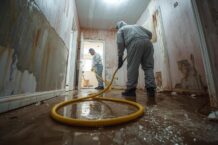
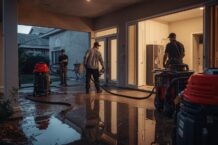
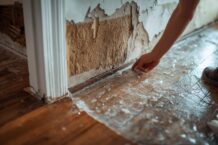
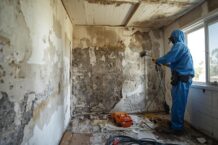
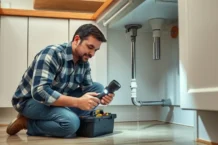
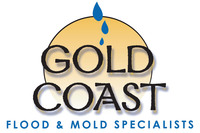


Follow Us!